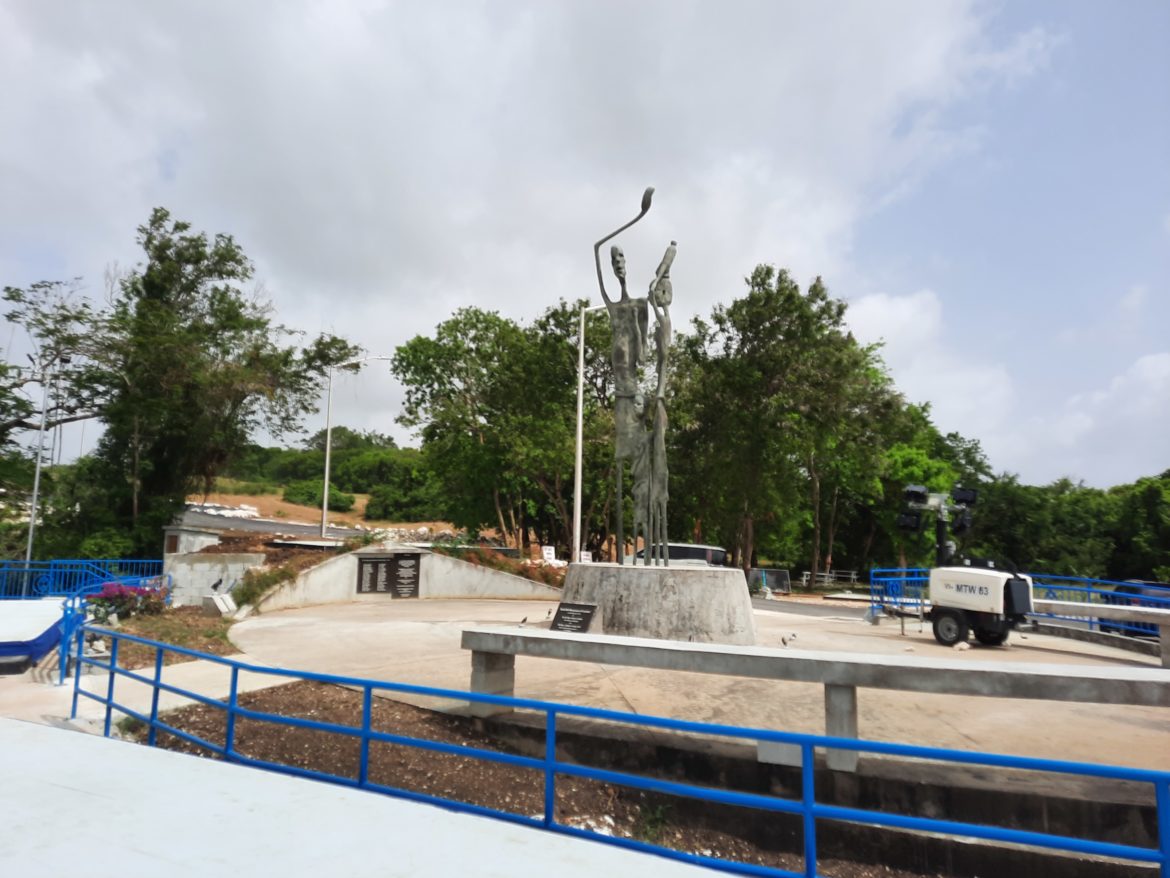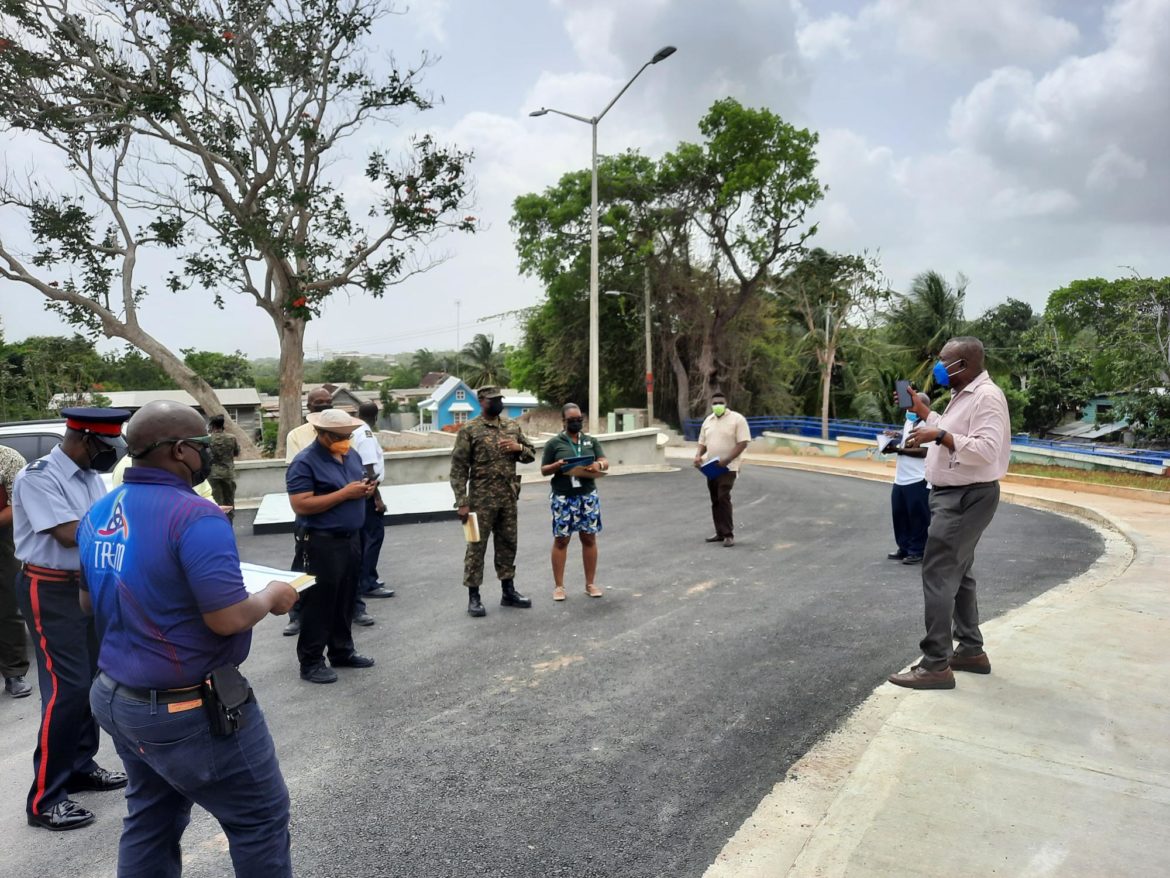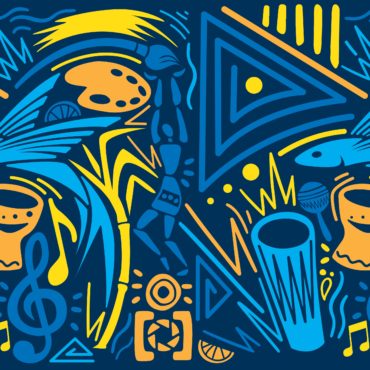
The National Cultural Foundation
West Terrace,
St. James, Barbados
246-417-6610

Date: June 30, 2022
Subject: Rock Hall start for Crop Over significant
It all ends where it began. On Saturday, July 2nd, Barbados’ sugar harvest is celebrated with the Ceremonial Delivery of the Last Canes, which begins its procession from the Rock Hall Freedom Village in Rock Hall, St. Thomas.

It was at Rock Hall, in 1841, where the first free village, in the first black slave society, was established after Emancipation. Where a group of liberated men and women from the Mount Wilton Estate purchased lots of ‘de rock’ to call ‘home,’ using funds bequeathed to them two decades after they were due.
Today, their names are written on history’s page and a brown, marbled plaque – a commemoration at the newly-opened heritage site. It sits next to a celebratory Abstract. The opening verse reads:
From the Belly of the Slave Ship to a; Free Holder. The Spirits of the African; Ancestors beckon the enslaved souls . . . Guiding them to the first Free Village.
The ‘Rock Hall Freedom Monument,’ designed by Standford C. Haynes, sits nearby featuring an abstract portrayal of a family
of three. Towering over the expansive area. The resilient spirit
of our ancestors casted in bronze. Our culture of perseverance
set in stone.
Starting the National Festival’s first official event at Rock Hall Freedom Park is of extreme importance to the National Cultural Foundation (NCF) as the country continues to celebrate the Season of Emancipation.
From the location to the elements on the poster have all been conceptualised to tell the story of a key part of our cultural heritage: the country’s Emancipation.

African motifs like this helped inspire designer of the event’s flier, Sheba Philips.
“We bring so many traditions from the MotherLand, which transcend into our own culture. You would see elements of both Barbados and Africa in the design . . . like the drums, windmill, and sugar… to help tell the story of us paying homage and celebrating our culture,” said Philips.
Organiser of the parade, Teila Williams, promises a spectacle: “You can expect colour. You can expect a visual story coming to life; various aspects of the culture and what makes Crop Over!” she said with a broad smile.
The multi-hyphenate cultural creative is no stranger to the parade, having been a past participant as a dancer and through her Ayo Creative Ventures. Now, this “Crop Over baby” is taking the baton and leading the march.
“The theme [is] Sugar: Mek it Sweet, for the parade as well as the ceremonial delivery of the canes.”
“[So] what makes it sweet? Yes, it’s cane. But… people, too. People make it sweet. So that story is going to come alive to you with the people and the processes of like, going through the sugar, the by–products . . . Crop Over is a by-product of sugar!” the coordinator said.
Visual depictions of this journey will be portrayed by citizens young and old, with involvement from community groups like The Barbados Landship, Multifarious Dance Crew, Pinelands Creative Workshop and Haynesville Dance Group.
It will also feature the familiar cast of cultural characters, whenever there is an observation, like towering stilt men, somersaulting shaggy bears, and dancing Muddah Sallys. Symbols of our African heritage that fill eyes with wonder and bring smiles to faces.
Fuelling the celebratory procession to Portvale Sugar Factory will be the booming sound of the Tuk drums and the dizzying penny whistle.
“You have to have the element of [tuk] music. That’s us.”
Indigenous sounds will continue throughout the evening with a Vintage Calypso Tent featuring stalwarts of Crop Over.
While this ceremony marks the start of the festival returning from a two-year hiatus, Williams doesn’t want the true significance to be lost in the “sights and sounds and colours.”
Her voice softened with her seriousness: “Outside of the visual aspect . . . I want [people] to take away the knowledge of it, and the backstories of it. It’s not just people in a parade . . . I would like them to take away the reason for the parade and the reason why we’re even having a ceremonial delivery of the last canes.”
Some reminders of this reason are at Rock Hall. On the plaques, on the monument; on the Adinkra symbols posted to the trees and welded into the railings.
Rock Hall Freedom Village represents where emancipated people first shook their status as property, free to make life sweet fuh we.
(PR)
[Ends]
For more information please email: toni-yarde@ncf.bb
Written by: Info NCF

labelArts & Culture - Music todayJune 30, 2022
Date: June 30, 2022Subject: Tents gearing up to face the judges The road to the Courtesy Garage Pic O De Crop Finals intensifies from next Saturday, July 9. That’s when [...]

labelNews todayFebruary 5, 2026

labelNews todayJanuary 28, 2026
The National Cultural Foundation
West Terrace,
St. James, Barbados
246-417-6610
Copyright 2024 National Cultural Foundation